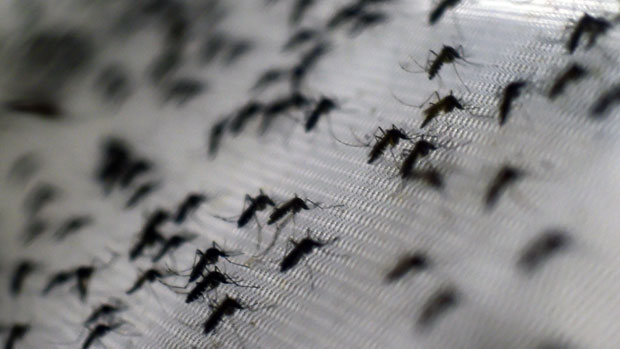New malaria breakthrough drug uses human blood as weapon
Medication used to treat river blindness shown to also reduce transmission of the mosquito-spread disease

A free daily email with the biggest news stories of the day – and the best features from TheWeek.com
You are now subscribed
Your newsletter sign-up was successful
A breakthrough new drug that could save countless lives is in the pipeline following the discovery that a medication commonly used to combat river blindness can also kill the parasite that spreads malaria.
Ivermectin, a drug discovered in the Streptomyces avermitilis bacteria in 1975, has for more than 25 years been used to kill parasites including lice, mites, worms and nematodes by disrupting the fluid exchange through the insect’s cell membrane.
In March, scientists reported that recent vaccine trials in Burkina Faso using Ivermectin for conditions unrelated to malaria had also seen malarial transmission rates drop significantly.
The Week
Escape your echo chamber. Get the facts behind the news, plus analysis from multiple perspectives.

Sign up for The Week's Free Newsletters
From our morning news briefing to a weekly Good News Newsletter, get the best of The Week delivered directly to your inbox.
From our morning news briefing to a weekly Good News Newsletter, get the best of The Week delivered directly to your inbox.
According to The Guardian, vaccination with the drug made “the blood of people who were repeatedly vaccinated lethal to mosquitoes”. Further research revealed that Ivermectin “can kill plasmodium falciparum, the malaria parasite carried by female mosquitoes”, the newspaper reports.
Experts now say that a new Ivermectin-based antimalarial drug could be released within two years.
Dr Simon Kariuki, head of the malaria branch at the Kenya Medical Research Institute (Kemri), said that human trials are being planned, adding: “We need more answers on Ivermectin. We need new malaria drugs as soon as possible as drug resistance is not something to ignore and we have to treat the situation as urgent.”
Although deaths from malaria have dropped by roughly 48% since 2000, recent figures show that malaria still killed 435,000 people in 2017, says The Telegraph.
A free daily email with the biggest news stories of the day – and the best features from TheWeek.com
And a study in August this year revealed that resistance to existing antimalarial drugs is increasing worldwide.
However, a paper published by the Yale School of Public Health earlier this year claimed that child malaria episodes could be reduced by up to 20% if populations living in high-risk areas were given Ivermectin.
-
 How the FCC’s ‘equal time’ rule works
How the FCC’s ‘equal time’ rule worksIn the Spotlight The law is at the heart of the Colbert-CBS conflict
-
 What is the endgame in the DHS shutdown?
What is the endgame in the DHS shutdown?Today’s Big Question Democrats want to rein in ICE’s immigration crackdown
-
 ‘Poor time management isn’t just an inconvenience’
‘Poor time management isn’t just an inconvenience’Instant Opinion Opinion, comment and editorials of the day
-
 High Court action over Cape Verde tourist deaths
High Court action over Cape Verde tourist deathsThe Explainer Holidaymakers sue Tui after gastric illness outbreaks linked to six British deaths
-
 Is the US about to lose its measles elimination status?
Is the US about to lose its measles elimination status?Today's Big Question Cases are skyrocketing
-
 A real head scratcher: how scabies returned to the UK
A real head scratcher: how scabies returned to the UKThe Explainer The ‘Victorian-era’ condition is on the rise in the UK, and experts aren’t sure why
-
 Trump HHS slashes advised child vaccinations
Trump HHS slashes advised child vaccinationsSpeed Read In a widely condemned move, the CDC will now recommend that children get vaccinated against 11 communicable diseases, not 17
-
 Vaccine critic quietly named CDC’s No. 2 official
Vaccine critic quietly named CDC’s No. 2 officialSpeed Read Dr. Ralph Abraham joins another prominent vaccine critic, HHS Secretary Robert F. Kennedy Jr.
-
 This flu season could be worse than usual
This flu season could be worse than usualIn the spotlight A new subvariant is infecting several countries
-
 Bluetoothing: the phenomenon driving HIV spike in Fiji
Bluetoothing: the phenomenon driving HIV spike in FijiUnder the Radar ‘Blood-swapping’ between drug users fuelling growing health crisis on Pacific island
-
 ‘Nightmare bacteria’ are rapidly spreading
‘Nightmare bacteria’ are rapidly spreadingUnder the radar The infections are largely resistant to antibiotics